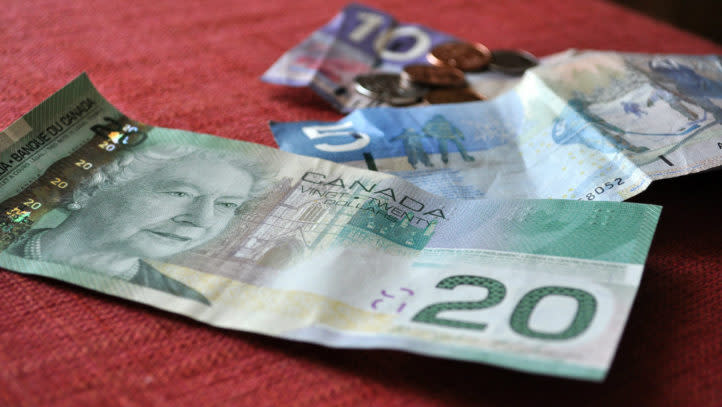Can We Expect an Interest Rate Hike on January 17?

One of the big questions for investors next week is whether or not the Bank of Canada will hike interest rates again on January 17. After a long period without any increases, the Bank of Canada increased rates twice in 2017. Some were expecting another rate increase last October, but that hike did not materialize. Let's take a look at the factors that will likely impact this week's decision.
Why rates might increase
A lot of the numbers out of Canada look good right now. To start, Statistics Canada recently announced December jobs numbers. Employers added almost 80,000 jobs in December, similar to November's numbers. The jobless rate dropped to 5.7% as a result, the lowest overall number we've seen in 41 years. Since employment seems to be humming along, the Bank of Canada might not be worried about jobs being negatively affected by a rate hike.
Added to these numbers, Canada's GDP is at its highest rate in six years. The Business Outlook Survey published by the Bank of Canada on January 8 shows much optimism on behalf of business owners and executives across the country. Finally, all of Canada's major banks are calling for a rate hike this week.
Why rates might stay where they are
Not everything is coming up roses, though. The biggest worry is still NAFTA. The Trump administration is still threatening to pull out of the deal, which would affect 75% of all Canadian exports. Canada taking its various trade complaints (including the softwood lumber and newsprint duties issues) to the World Trade Organization this week doesn't bode well for U.S. relations. The Bank of Canada is likely worried about all of the trade uncertainty and may be hesitant to rock the boat even a little right now.
Inflation is not really a concern at the moment, so a rate hike isn't needed to cool consumer prices. The Bank of Canada is likely still concerned about the debt levels facing many Canadians. Higher rates won't help relieve us of our debt burdens. We also got new, tighter mortgage rules last year. Since some potential Canadian homeowners might already be feeling a squeeze, the Bank of Canada is cognizant of how increasing rates would push even more people out of the housing market.
The loonie has already improved 11% compared to the U.S. greenback since last spring, and any rate increase will also likely improve the performance of the Canadian dollar. This will help some Canadian companies and stocks, such as Toronto-Dominion Bank (TSX:TD)(NYSE:TD) and Royal Bank of Canada (TSX:RY)(NYSE:RY), as they will be able to charge higher rates. But not all companies will rejoice in a higher dollar. When exports are more expensive for our American customers, it makes our goods and services a little less attractive. This is also a factor the Bank of Canada will consider.
Bottom line
I hate putting predictions in writing, so I won't make a prognostication for this week. If we do get a hike, it will have an uneven effect on stocks on the TSX. You can read this article by Fool contributor Haris Anwar about how rate increases can affect dividend stocks, and this article by Joey Frenette about rate increase effects on REITs to get a sense of how some of your stocks might be influenced by the next rate hike, whenever it happens to come.
More reading
Should You Be Loading Up on Aurora Cannabis as it Battles CanniMed Therapeutics?
The surprising new technology that could create the world's very first TRILLIONAIRE
Canadian Marijuana Stocks to Buy as the Germany Battle Intensifies
Fool contributor Susan Portelance has no position is any stocks mentioned.

 Yahoo Finance
Yahoo Finance 